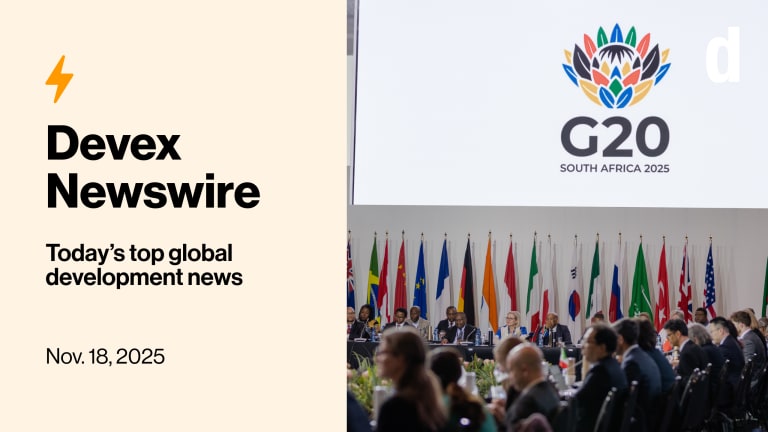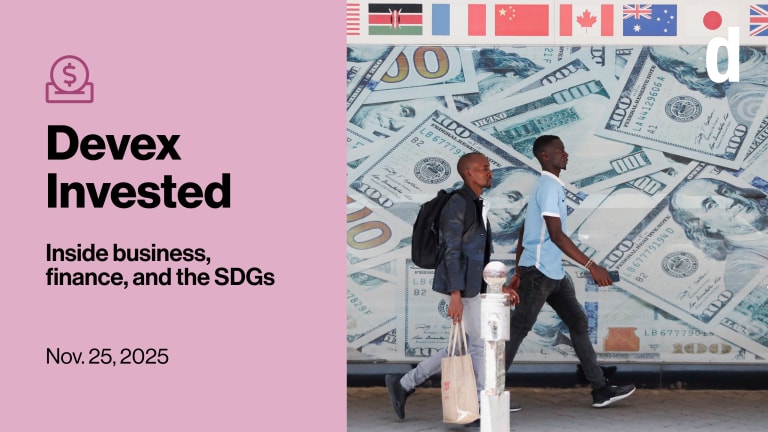Africa broadcast its demands loud and clear during the Africa Climate Summit, but what happens in the weeks and months ahead will determine if anyone was really listening.
Also in today’s edition: Lots of pledges at the G20 summit, including from the World Bank.
The Africa Climate Summit was infused with the now-rote calls for wealthier governments, the private sector and multilateral lenders to help the continent cope with climate change, the effects of which it’s least responsible for but disproportionately harmed by.
Printing articles to share with others is a breach of our terms and conditions and copyright policy. Please use the sharing options on the left side of the article. Devex Pro members may share up to 10 articles per month using the Pro share tool ( ).








